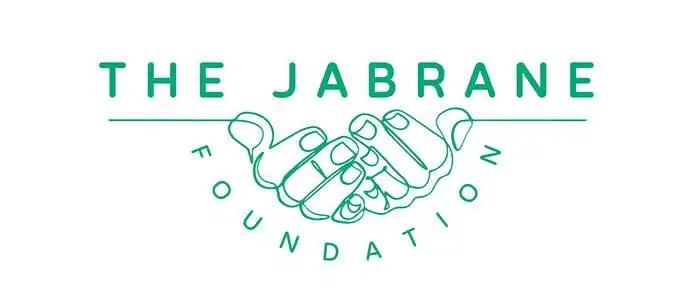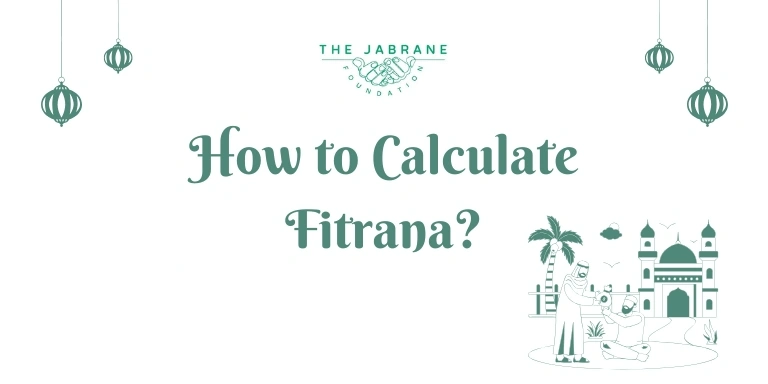Fitrana, also known as Zakat al-Fitr, is an obligatory charity given by Muslims at the end of Ramadan. It serves as a means of purifying the fasts of Ramadan and helping those in need. The amount is calculated based on staple food items and is meant to ensure that everyone, regardless of their financial status, can enjoy Eid celebrations.
If you’re wondering, “How to calculate Fitrana?” you’re in the right place. In this guide, we’ll walk you through the entire process in simple terms, helping you understand how to calculate Fitrana and make your donation in the most effective way. You’ll also learn how using a Fitrana calculator can make the process even easier.
What is Fitrana and Why Is It Important?
The Meaning of Fitrana
Fitrana is a form of charity that Muslims are required to pay before Eid al-Fitr. It is meant to purify the fasts and make the celebration of Eid more inclusive for everyone, especially the less fortunate. The term “Fitrana” is derived from the word “Fitr,” meaning breaking the fast. By paying this charity, Muslims cleanse their fast and help those in need of food during the festival.
The Role of Fitrana in Ramadan
Fitrana is a way for Muslims to ensure that everyone in the community, regardless of their financial situation, can join in the joy of Eid. It’s an important act of charity, designed to share blessings and bring people together. Additionally, the amount given is meant to ensure that the recipients have enough food to celebrate Eid with dignity.
How to Calculate Fitrana?
The Formula for Calculating Fitrana
Calculating Fitrana is relatively simple, and it usually follows a standard guideline: it is based on the cost of staple food items like wheat, dates, barley, raisins, or other basic grains. The value of Fitrana is calculated using the quantity equivalent to the “sa’a,” an Islamic measure of volume.
Typically, Fitrana is calculated as the cost of 2.5 kg of staple food per person. This means that for each individual, the Fitrana amount is calculated based on the price of 2.5 kg of food. The exact amount can vary depending on local food prices, so it is best to refer to local authorities or mosques for the accurate value.
The Value of Fitrana for Each Person
The value of Fitrana may differ slightly based on location and food prices in your area. For example, in some regions, the cost of 2.5 kg of dates or wheat may be higher than in others. On average, Fitrana can range from $5 to $10 USD per person.
In Pakistan, the value of Fitrana is typically calculated in Pakistani Rupees (PKR). For the year 2025, the estimated value of Fitrana in Pakistan is around Rs. 500 to Rs. 1,000 per person. This can fluctuate depending on the local prices of food staples, so it’s advisable to confirm with your local mosque or charity organization for the exact amount.
Who Is Responsible for Paying Fitrana?
Fitrana is obligatory for every Muslim who has the financial means to pay it. This includes adults, and parents are also responsible for paying Fitrana on behalf of their children. If you are the head of a family, you will need to calculate Fitrana for each person in your household. This ensures that everyone is covered, including infants, elderly dependents, and those who cannot afford to pay it themselves.
When to Pay Fitrana
Ideally, Fitrana should be paid before the Eid prayer. However, it is allowed to pay a few days in advance, particularly during the last days of Ramadan, to ensure that the charity reaches those in need in time. The closer it is paid to Eid, the better, as this allows the beneficiaries to use it during the Eid celebrations.
Examples of Fitrana Calculation
Here’s an example to help you understand how to calculate Fitrana:
- Suppose the cost of 2.5 kg of dates is Rs. 700.
- If you have a family of four, the total Fitrana amount would be:
Rs. 700 x 4 = Rs. 2,800.
This means you would pay Rs. 2,800 for your family’s Fitrana.
How Fitrana Is Measured and Its Cost
Common Measurement Units for Fitrana
Fitrana is often measured using the Islamic unit called “sa’a.” One sa’a equals about 2.5 kg of food, which is the standard quantity considered when calculating the Fitrana. The cost of this 2.5 kg of food is what determines the amount you pay. Different mosques and organizations will often provide the equivalent monetary value based on local food prices.
What Factors Influence the Cost of Fitrana?
The cost of Fitrana can vary depending on local food prices, inflation, and economic conditions. In Pakistan, the cost of wheat, dates, or other food staples can change from year to year. For example, the price of dates may rise during Ramadan due to increased demand. Local mosques or Islamic organizations usually announce the updated rates for the community to ensure everyone pays a fair and accurate amount.
How to Use a Fitrana Calculator?
To make the process even simpler, many online Fitrana calculators are available. These tools take into account the latest food prices in your region and automatically calculate the Fitrana amount for you. All you need to do is input the number of people in your household, and the calculator will do the rest. This is a convenient way to ensure that your Fitrana is calculated accurately without any confusion.
Tips for Paying Fitrana Effectively
Why It’s Important to Pay on Time
It’s essential to pay Fitrana before Eid prayer, as this allows the poor and needy to benefit from it in time for the celebrations. Paying on time ensures that you fulfill your obligation properly and share the joy of Eid with those in need. Delaying the payment may reduce its intended impact on the community.
How to Ensure Your Fitrana Reaches the Needy
When donating your Fitrana, it’s important to make sure it reaches the people who need it the most. You can give Fitrana directly to individuals, or you can donate through trusted organizations that distribute the charity to deserving people. Consider donating to Jabrane Foundation, a reputable charity that works to support the underprivileged, ensuring your Fitrana reaches those who truly need it.
Can Fitrana Be Paid in Kind (Food Items)?
Yes, Fitrana can be given in the form of food items, such as grains, dates, or flour, instead of cash. This is particularly helpful in areas where food scarcity is an issue. By donating food, you provide immediate relief to those who are struggling. However, in most places, it is more common to give Fitrana in monetary form as it allows the recipients to purchase what they need.
Mistakes to Avoid
Underestimating the Value:
It’s easy to underestimate the value of Fitrana, especially if you’re not familiar with local food prices. However, it’s important to calculate the amount accurately so that the charity fulfills its intended purpose. Using an online Fitrana calculator can help you avoid this mistake and ensure that you are giving the correct amount.
Delaying the Payment:
Delaying the payment of Fitrana until after Eid means that the poor and needy may not receive it in time to benefit from it during the holiday. Aim to pay it in advance to ensure it has the desired impact.
Misunderstanding Who Should Pay?
Sometimes, people misunderstand who is responsible for paying Fitrana. Remember, Fitrana should be paid on behalf of all household members, including children, dependents, and elderly family members.
Conclusion
In conclusion, knowing how to calculate Fitrana is essential for fulfilling this important obligation during Ramadan. By following the steps outlined in this guide, you can easily calculate the amount due and make your donation on time. Using a Fitrana calculator can simplify the process, ensuring accuracy and ease.
Most importantly, don’t forget the impact your donation can have. Fitrana is not just a financial obligation—it’s an opportunity to make a real difference in the lives of the poor. This Ramadan, consider donating your Fitrana to Jabrane Foundation, where your contribution will go directly to those in need, spreading joy and support to many families during Eid.
By giving, you’re not only purifying your fast but also creating a meaningful connection with your community.


